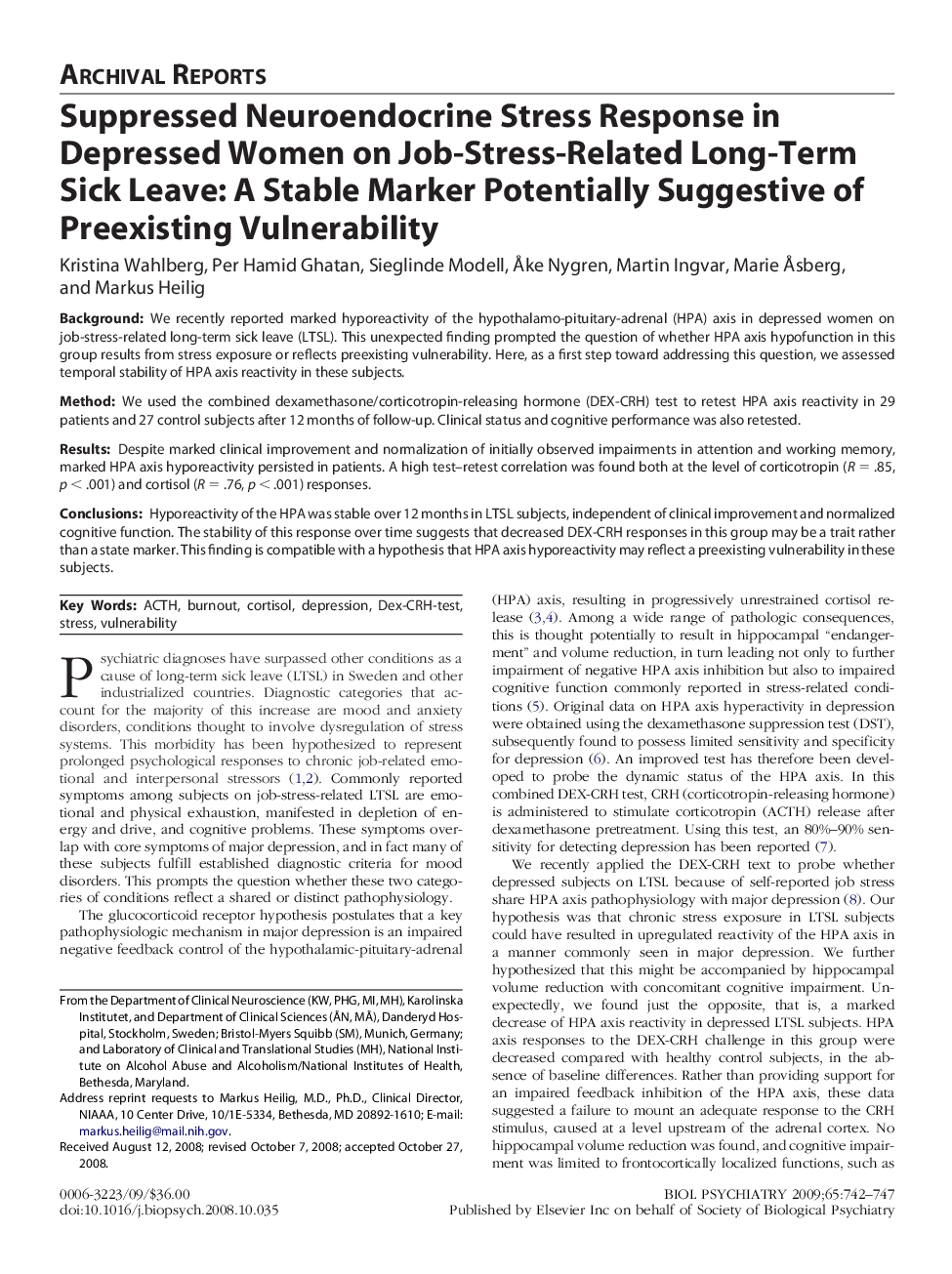| Article ID | Journal | Published Year | Pages | File Type |
|---|---|---|---|---|
| 4179676 | Biological Psychiatry | 2009 | 6 Pages |
BackgroundWe recently reported marked hyporeactivity of the hypothalamo-pituitary-adrenal (HPA) axis in depressed women on job-stress-related long-term sick leave (LTSL). This unexpected finding prompted the question of whether HPA axis hypofunction in this group results from stress exposure or reflects preexisting vulnerability. Here, as a first step toward addressing this question, we assessed temporal stability of HPA axis reactivity in these subjects.MethodWe used the combined dexamethasone/corticotropin-releasing hormone (DEX-CRH) test to retest HPA axis reactivity in 29 patients and 27 control subjects after 12 months of follow-up. Clinical status and cognitive performance was also retested.ResultsDespite marked clinical improvement and normalization of initially observed impairments in attention and working memory, marked HPA axis hyporeactivity persisted in patients. A high test–retest correlation was found both at the level of corticotropin (R = .85, p < .001) and cortisol (R = .76, p < .001) responses.ConclusionsHyporeactivity of the HPA was stable over 12 months in LTSL subjects, independent of clinical improvement and normalized cognitive function. The stability of this response over time suggests that decreased DEX-CRH responses in this group may be a trait rather than a state marker. This finding is compatible with a hypothesis that HPA axis hyporeactivity may reflect a preexisting vulnerability in these subjects.
